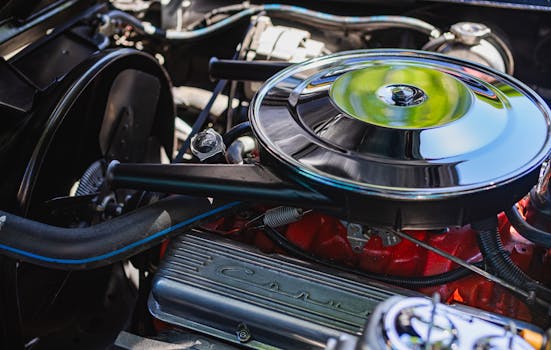
How to Maintain Your Car’s Engine Effectively: A Comprehensive Guide
Takeaways: Proper engine maintenance is crucial for the longevity and performance of your vehicle. Regular checks, oil changes, and attention to various components can prevent costly repairs and ensure a smooth driving experience.
Maintaining your car’s engine is one of the most important aspects of vehicle ownership. A well-maintained engine not only enhances performance but also improves fuel efficiency and prolongs the lifespan of your vehicle. In this article, we will explore effective strategies for maintaining your car’s engine, ensuring it remains in top condition for years to come.
Regular Oil Changes

- Follow Manufacturer’s Recommendations: Check your owner’s manual for the recommended oil change intervals. Most vehicles require an oil change every 5,000 to 7,500 miles.
- Use the Right Oil: Always use the oil grade specified by the manufacturer. Using the wrong oil can lead to engine damage and reduced performance.
- Check Oil Levels: Regularly check the oil level using the dipstick. If it’s low, top it off with the appropriate oil.
Monitor Engine Temperature
Keeping an eye on your engine’s temperature is vital. An overheating engine can lead to severe damage. Here’s how to monitor and manage engine temperature:
- Check Coolant Levels: Make sure your coolant levels are adequate. Low coolant can cause overheating.
- Inspect the Radiator: Regularly check for leaks or blockages in the radiator, as these can lead to overheating.
- Watch for Warning Lights: Pay attention to your dashboard warning lights. If the temperature gauge rises too high, pull over and turn off the engine immediately.
Replace Air Filters
The air filter prevents dirt and debris from entering the engine, which can impact performance. Here’s how to manage your air filters:
- Check Filters Regularly: Inspect your air filter every few months. A dirty air filter can restrict airflow and reduce engine efficiency.
- Replace as Needed: Depending on driving conditions, you may need to replace your air filter every 12,000 to 15,000 miles.
Inspect Spark Plugs
Spark plugs ignite the air-fuel mixture in your engine, making them critical for performance. Here’s how to care for spark plugs:
- Check for Wear: Inspect spark plugs for wear and carbon buildup. Worn plugs can cause misfires and decreased performance.
- Replace as Recommended: Follow the manufacturer’s recommendations for replacing spark plugs, typically every 30,000 to 100,000 miles.
Keep the Fuel System Clean
A clean fuel system ensures your engine receives the proper fuel-air mixture. Here’s how to maintain it:
- Use Quality Fuel: Always use high-quality fuel from trusted sources. Poor-quality fuel can lead to engine deposits.
- Consider Fuel Additives: Occasionally, use fuel system cleaners to remove deposits and improve performance.
Conclusion
Maintaining your car’s engine is essential for ensuring its longevity and performance. By following these tips—regular oil changes, monitoring engine temperature, replacing air filters and spark plugs, and keeping the fuel system clean—you can keep your engine running smoothly for years to come. Remember, preventative maintenance is always more cost-effective than waiting for a problem to arise. Invest time in your vehicle today for a reliable ride tomorrow.







